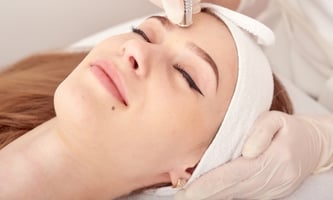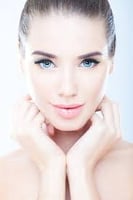Introduction In the vibrant city of Dubai, where trends and beauty standards evolve as rapidly as...
"Brighter Faces, Cultural Spaces: Dubai's Embrace of Skin Whitening Products"
Introduction:
In the vibrant and diverse cultural mosaic that is Dubai, a fascinating trend has been quietly making its mark on the beauty industry – the growing popularity of skin-whitening products. While the global beauty market has seen its fair share of controversies surrounding the promotion of lighter skin tones, Dubai's unique socio-cultural landscape adds a layer of complexity to this phenomenon. This article delves into the nuances of Dubai's embrace of skin-whitening products, exploring the cultural, social, and economic factors that contribute to this beauty trend.

Cultural Perspectives:
Dubai, a city known for its multicultural population, is a melting pot of traditions, values, and aesthetic preferences. In some cultures, fair skin has long been associated with beauty, purity, and social status. These deep-rooted beliefs have, to an extent, influenced the beauty standards within the region, contributing to the popularity of skin-whitening products.
The concept of "fairness" in beauty has historical significance in various cultures, often linked to notions of prosperity and refinement. Understanding these cultural perspectives is crucial to grasping why skin whitening products find a receptive market in Dubai.
Media and Advertising Influence:
The power of media and advertising in shaping beauty standards cannot be overstated. Dubai, with its thriving media industry, is bombarded with images and messages that often equate fair skin with success and attractiveness. From billboards to social media influencers, the pervasive influence of these platforms plays a significant role in steering consumer preferences toward skin-whitening products.
Globalization and Product Accessibility:
Dubai's strategic geographical location and its role as a global business hub have facilitated the easy accessibility of products from around the world. This includes a wide array of skin whitening products catering to different skin types and preferences. The globalization of beauty standards, combined with the availability of diverse product options, contributes to the growing market for skin whitening products in the city.
Economic Empowerment:
As Dubai continues to flourish economically, the population's disposable income has increased, enabling a greater spending capacity on luxury and beauty products. Skin whitening products, often marketed as premium and high-end, are perceived as a symbol of affluence and sophistication. The desire to invest in one's appearance as a form of self-care and status symbol further propels the demand for these products.
Social Dynamics and Peer Influence:
Social dynamics and peer influence also play a pivotal role in shaping beauty preferences. In a city where social gatherings are frequent and diverse, individuals may be influenced by the beauty choices of their peers. The desire to conform to certain beauty ideals within social circles can contribute to the popularity of skin whitening products as individuals seek to align with perceived norms.
Conclusion:
Dubai's embrace of Skin whitening in Dubai products reflects a complex interplay of cultural, social, and economic factors. As the beauty industry continues to evolve in this dynamic city, it is essential to approach this trend with sensitivity and an understanding of the diverse perspectives that contribute to it. Ultimately, the choice to use skin whitening products is a personal one, influenced by a myriad of factors that make Dubai's beauty landscape as multifaceted as the city itself.


